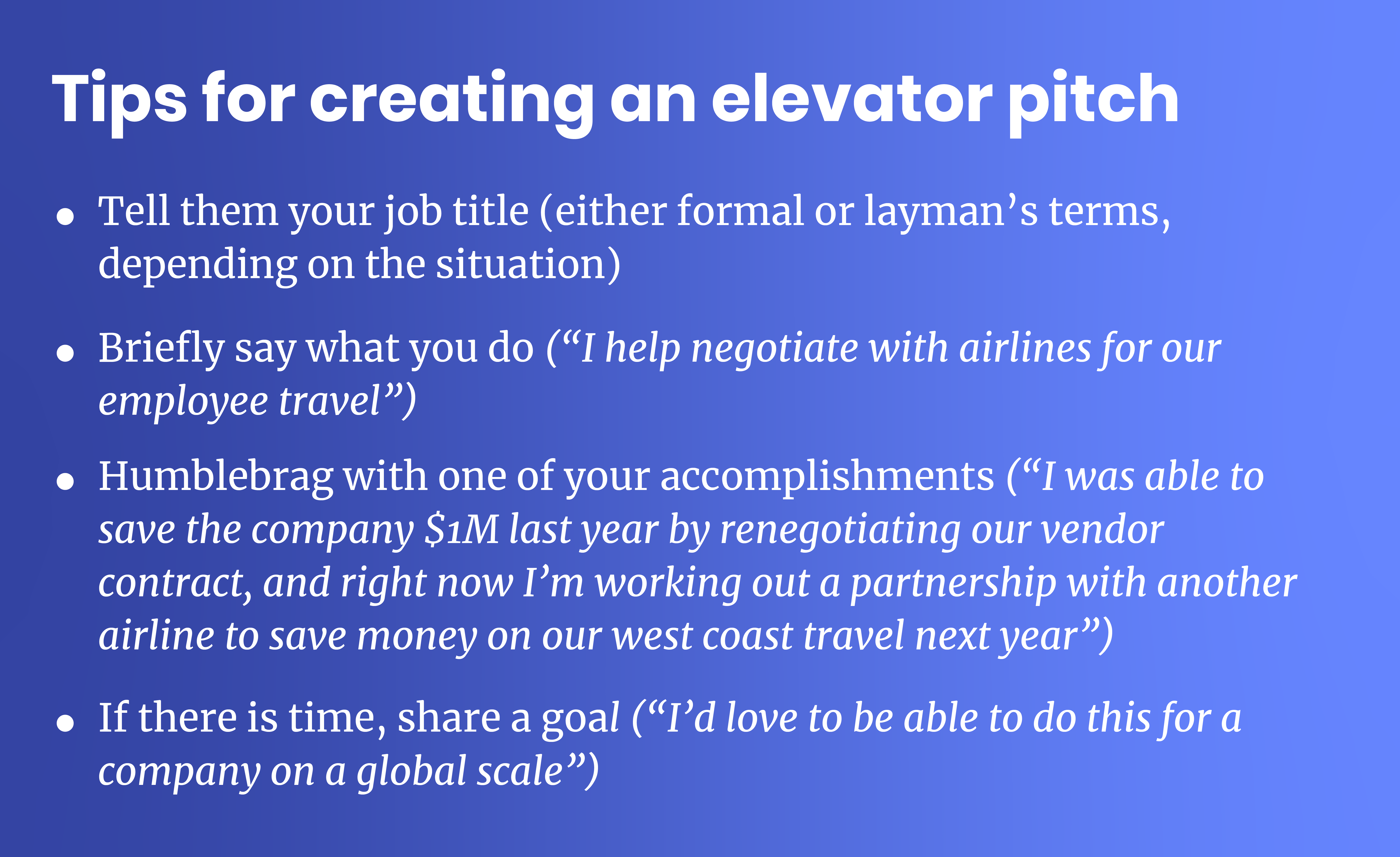In theory, your resume is a condensed version of your accomplishments and the experience you’ve gained throughout your career. In reality, even with all of the bullet points and attention-grabbing language, a resume is still pretty long. Think about it, throughout your job search, you’ll be tasked with talking about your work history several times over, and it would take way too long to read through everything on your resume.
Some instances where you may find yourself needing a quick overview of your career include cover letters, interviews, or simply meeting someone influential at an event. In all of these cases, you have to choose what is most important to talk about, and you have to figure out how to deliver it compellingly.
So, how do you condense your experience even more than you did on your resume? You’ve already had to reduce many achievements and responsibilities to create the resume. So, how are you supposed to come up with a work summary of something that was already a summary, to begin with?
📖Read more: Learn how to highlight your accomplishments to provide a more accurate picture of your experience and skills.
There isn’t a single strategy for this unfortunately, many times, it will depend on the situation. What you choose to share in a cover letter may not be as helpful when you’re talking to someone in person, and spewing a bunch of numbers and data at someone in a casual setting might not be as effective as it would be during a formal interview. You’ll need to be flexible, but here are some tips to help you get started.
Focus On Milestones
When you write up a resume, you have to strategically choose which accomplishments, milestones, and general information is worth taking up some of your limited paper space. You prioritize what to highlight and what is worth leaving out. The same strategy applies when you’re trying to give a brief overview of what you’ve accomplished.
Take a look at what you keep on your resume. Now, think about which accomplishments most reflect what you do and what you will bring to a company. Try to create a list to narrow down to your five best achievements and rank them in order of importance. These are going to be the things you center your conversations around. In some cases, you may be able to touch on all five, but in others, you may only get to bring up one or two, which is why it’s helpful to rank them.
Create An Elevator Pitch
The interviewer will ask you to give a brief overview of your work history in some situations, so you’ll want to have an elevator pitch ready to go. If you’re not sure what that is, an elevator pitch is what you would say if you were trying to sell an idea (or, in this case, yourself as a job candidate) to someone in the time it took you to ride an elevator with them. You have between 30 and 60 seconds to make your case.
You may find yourself giving your elevator pitch when you’re at a networking event, and someone asks you about your work history. It’s also useful at early-stage interviews where a recruiter is just trying to get a feel for what you do and whether or not you’d be suitable for a position.
Tips for creating an elevator pitch

- Tell them your job title (either formal or layman’s terms, depending on the situation)
- Briefly say what you do (“I help negotiate with airlines for our employee travel”)
- Humblebrag with one of your accomplishments (“I was able to save the company $1M last year by renegotiating our vendor contract, and right now I’m working out a partnership with another airline to save money on our west coast travel next year”)
- If there is time, share a goal (“I’d love to be able to do this for a company on a global scale”)
When you deliver your elevator pitch, just remember to keep a conversational tone. It’s okay (and valuable) to practice it a few times, but when it comes time to present it, make sure you don’t sound like you’re reciting a script. Keep it natural.
Explaining Your Work History
You won’t always have to be in a rush while giving an overview of your work history. When you’re writing a cover letter or in an interview, you’ll have more flexibility in how much detail you can give and how many accomplishments you can highlight. That said, you still need to keep it brief and to the point.
Writing a cover letter should be no longer than one page long and broken into a few short paragraphs. Cover letters can seem painful to write, but there isn’t much space to explain your work history, so you need to be strategic and brief once again. Look at your ranked list of accomplishments. Which ones align best with the job you’re applying for? You should highlight at least two, but you may even be able to get three or four into the letter. However, even if you have the space to highlight four accomplishments, don’t include anything relevant to the job you’re applying for because it’s already on your resume, and it’s not going to do you any favors on your cover letter.
During a face-to-face or more formal interview, you’ll very likely be asked the inevitable: “So, tell me about yourself.” It’s your chance to highlight the accomplishments that you want to make sure the interviewer knows. Don’t assume you’ll have an opportunity to bring it up later in the interview; if you want them to know about a particular achievement, use this time to tell them. Use your elevator pitch as a framework for answering this question, but go into a little more detail throughout the interview. You don’t need to limit this to 30 seconds, but you also don’t want to babble for two minutes. Instead, try to aim for around one minute and touch on as much as you can (without sounding like a robot or talking super fast).
📖Read more: Use our interview guide to get all of the advice to make a memorable impression.
Final Thoughts
The most important thing to remember in all of this is that to impress a recruiter, interviewer, or a new connection, highlight the most important accomplishments (they can learn about the rest when they read your resume). So, rank your achievements, do some prep work, practice your pitch, and you’re sure to dazzle them with what you can bring to the table.
Find career opportunities with vetted, family-friendly companies.
Join our talented community of moms and mom allies. Whether you’re searching for your next opportunity, looking to give or get career guidance, or just getting started—you’re in the right place. 



